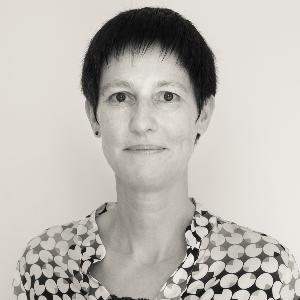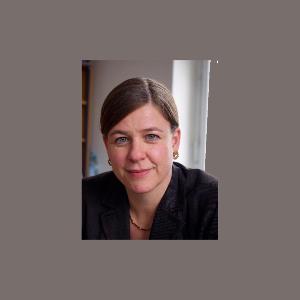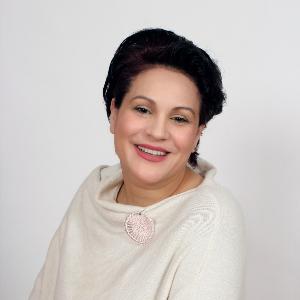Mentoring: Giving crucial direction from the start
8 Feb 2022
Mentoring programs at LMU advance the academic careers of women in particular - with a combination of advice, networking and financial support.
8 Feb 2022
Mentoring programs at LMU advance the academic careers of women in particular - with a combination of advice, networking and financial support.

© IMAGO / Shotshop
Professor Beate Gsell rates all 23 mentees at LMU’s Faculty of Law as “high potentials”. “Accompanying these young women as they begin their academic career is just great fun,” she says. Accordingly, the holder of the Chair of Civil Law, Civil Procedure, European Private Law and Procedure, who also serves as a judge at Munich’s Higher Regional Court, “thoroughly enjoys” her role as the women’s mentor. “It lets me give advice at a time when you can still give people direction for the future.”
Born of the central LMU Mentoring program for junior researchers that was part of the Excellence Initiative, the program in its current form has continued at individual faculties in the new funding period (since 2017). Endowed with a higher budget, it has since, in principle, also been open to male mentors and mentees. One main objective at many faculties is nevertheless still to promote women’s academic careers in particular, thereby augmenting the share of female professors in the long term.
At the Faculty of Law, the mentoring program focuses above all on getting the mentees connected, Gsell notes – for example at lunches and meetings with successful academics who give insights into their personal career, including obstacles and adversities they have faced. “We were recently able to hold Zoom meetings with Professor Angelika Nußberger, former Vice President of the European Court of Human Rights, and Professor Katharina Boele-Woelki, President of the highly respected Bucerius Law School,” Gsell enthuses. “We urgently need such female role models who are extremely encouraging for our budding legal professionals.” That is because the domain of law is still “heavily male-dominated”, she adds: “Throughout their studies, the young women have often experienced no more than one or two female professors.”

Women’s mentor at the Faculty of Law: Prof. Beate Gsell | © Elmar Streyl
An annual seminar on the island of Frauenchiemsee also gives the mentees “time to talk and share on an intensive level”, alongside a program of soft skill tuition and coaching. Time, of course, is a scarce commodity for most women. “Empirical evidence shows that they still bear the main burden of childcare.” The fact that the latest research ideas are often discussed more informally, and that personal and thematic network-building tends to take place on the margins of international conventions or evening lectures thus puts women with small children at a structural disadvantage, Gsell explains. “That’s where we have to take corrective action – for example by getting junior researchers to organize conventions and workshops themselves from an early stage.” She also advises young colleagues to be selective about how they invest their time: “Part of that is also being able to say no to thankless tasks – and of thinking very carefully about the topics on which you publish papers.”
One former mentee from the Faculty of Law is Professor Christine Osterloh-Konrad. While engaged in postdoctoral research at LMU, the now holder of the Chair of Civil Law, Commercial and Company Law, Tax Law and the Philosophy of Law at the University of Tübingen was accompanied by Beate Gsell’s predecessor, Professor Petra Wittig. “I found one series of soft skill training courses especially helpful,” Osterloh-Konrad says. “Among the topics addressed were body language, the use of voice, but also gender-specific communication.” The subject of one particularly impressive seminar was how women deal with male-oriented communication environments. “The point made was that a typically male approach is to start by quietly clarifying the hierarchy: Who is the alpha in the room? Who is way down in the pecking order? Women tend not to feel this need – which means that certain meeting situations are irritating for us.”

One former mentee from the Faculty of Law: Professor Christine Osterloh-Konrad (now University of Tübingen). | © ©Universität Tübingen
Osterloh-Konrad describes the seminar as “an eye-opener”. “You don’t have to adopt the male behavioral patterns for yourself,” she says, “but knowing about them helps you position yourself accordingly.” Whether the issue is clarifying the hierarchy, making comments at the end of a presentation or exclusively addressing the alpha in the group: “I have simply become more conscious of the differences between female and male ways of communicating, and that has helped me in many ways.”
Another aspect of mentoring that the professor of law values greatly is the ability to build networks with the other mentees at the faculty, as well as the “very open and honest feedback culture” – both among mentees and with the mentor. “There was this protected space where you could talk and support each other.”
Johanna Panagiotou, a specialist in American studies, is likewise looking forward to dialogue with the other 14 mentees at the Faculty of Languages and Literatures. Working on her dissertation about transnational women’s biographies in the Cold War, she is currently “writing like crazy” – but does not know what will happen after that. “Vacancies for postdocs are rare,” she says. “And with my three children, I have to stay where I live right now.” In this situation, she is glad that Professor Annette Keck recently became her mentor and will stand by her until she has submitted her work. “Even just knowing that an academic with experience in career matters is there to listen to me is a source of motivation,” Panagiotou says.

Female academics often identify themselves very strongly as the staff of an institution and put their own research goals in second place behind tuition and administration, says Prof. Keck. | © privat
Annette Keck, holder of the Chair of Modern German Literature, Cultural Theory and Gender Studies, has been a mentor since 2008. “At the Faculty of Languages and Literatures, 80 percent of the students – but only 20 percent of the professors – are women.” The focused promotion of female junior academics is one way to counteract this status quo. Alongside the faculty’s “Career Funds”, from which researchers of either sex can apply for financial support, the mentoring program is available specifically for women. “It supports female postdoctoral students, candidates for professorships and private tutors at critical points in their career,” Keck explains.
Recently, the program also began to admit doctoral students who, like Johanna Panagiotou, are in the final year of their dissertation. The aim is “to walk them through the transition to an academic career”. Selection is based on the excellence of their research: “Grades are important, but so too is the network that someone has perhaps already developed.” Special consideration is given to researchers with young children and those that do not come from an academic family background. Applicants must submit a letter of motivation, a resume, a list of publications and a letter of recommendation. They are also required to attend an in-depth application interview.
Knowing the administrative structures is more important to an academic career than many people think.Annette Keck

Doctoral candidate in American Studies: Johanna Panagiotou | © privat
The mentees expect an “individually tailored program”, Keck says – in terms of the advice provided, but also the financial support. Funding for research stays abroad encourages internationalization. And mothers, for example, are supported with jobs for scientific assistants and childcare scholarships so that researchers can attend evening events or conventions. Questions frequently asked in the context of mentoring are: How do I set up my postdoctoral research? Is this or that convention worth a visit?
Keck is especially keen to familiarize mentees who are not from an academic family background with the university as an institution. “The Faculty Council, appointment procedures… Knowing the administrative structures is more important to an academic career than many people think.” The experienced mentor sees this pattern again and again: “Academics often identify themselves very strongly as the staff of an institution and put their own research goals in second place behind tuition and administration. Yet it is not merely legitimate to concentrate on your own career: In today’s academic space, doing so is a matter of survival.”
Doctoral candidate Johanna Panagiotou is looking forward to getting to know the other mentees at the Faculty of Languages and Literatures. “Maybe that could lead to friendships? Or a joint publication?” The latter could also help her indirectly with applications. Either way, she feels that the mentoring program leaves her better equipped to go looking on the hard-fought academic job market. “You feel a bit like a godchild,” the biography researcher says, “within the wider family of the university.”
More information about the LMU Mentoring program is available from the faculties, e.g. the Faculty of Law (in German only).
This program is not to be confused with the various other mentoring programs available at the university, such as those provided to students by the Career Service and the various subject-specific programs, such as MeCuM Mentoring at the Faculty of Medicine.
Academic Careers: LMU offers attractive career opportunities and support services